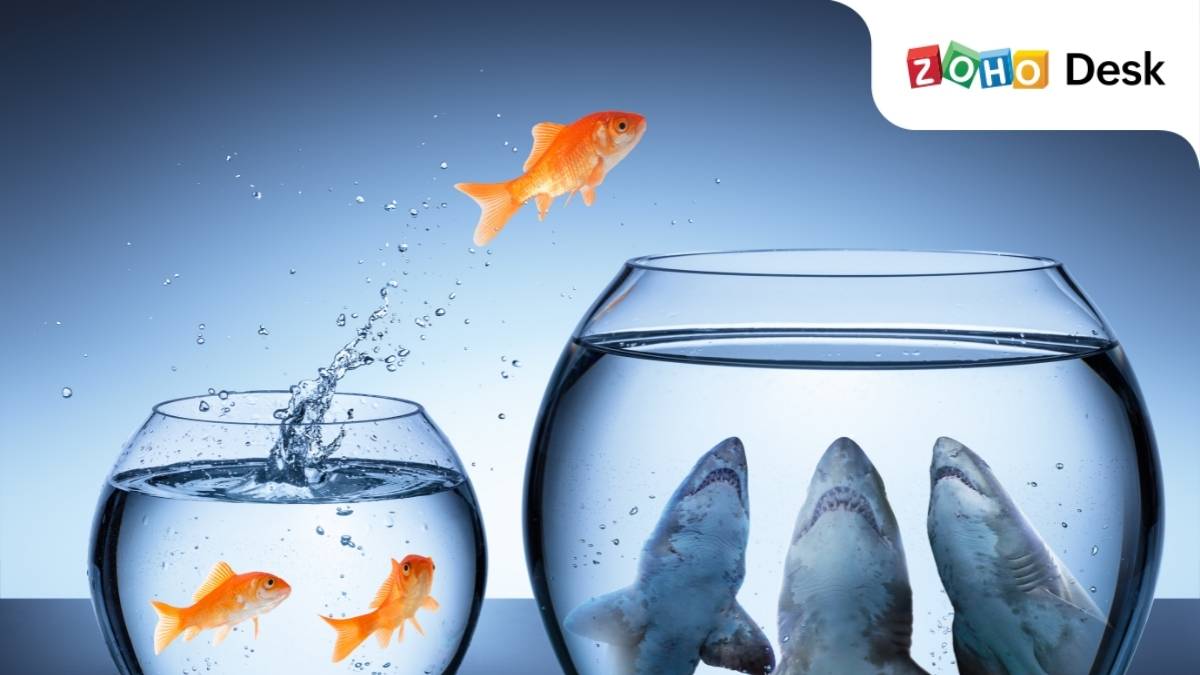- HOME
- Customer Experience
- What business mergers and acquisitions mean for customers
What business mergers and acquisitions mean for customers
- Published : August 29, 2022
- Last Updated : August 9, 2023
- 1.5K Views
- 5 Min Read

A new economic climate is emerging with some businesses thriving, others going under, and a few getting acquired. Whether business acquisitions are actually good for a company is often debated. But the effects on the customers are rarely discussed.
Mergers and acquisitions (M&A) are not innately bad, but most acquired companies' goals are to deliver value to shareholders—not customers. Generally, after an acquisition, companies are not trying to improve their services or products to get more customers. As noted by the American Customer Satisfaction Index (ASCI), they are simply buying a larger customer base. Larger does not always mean better. You can buy customers by going on an acquisition spree, but you cannot buy their loyalty.
For most big players, it is not easy to focus on building new products from scratch all the time. Acquiring smaller players allows them to increase their business size. However, it is the customers who have to face the repercussions of these deals. According to ASCI, "on average, the acquiring company experiences a 3% drop in customer satisfaction over the initial two-year period post-merger."
Classic M&A stories that negatively impacted customers
Dozens of deals are a testament to the fact that acquisitions do not always mean better experiences for customers.
Boeing's shift away from its engineer-led roots contributed to 346 fatalities
Boeing was known for engineering supremacy and its devotion to building quality aircraft. They were a "customer-first" company and their philosophy was: You want it? We'll make it and we'll make it the best.
Anticipating a commercial jet boom, Boeing merged with McDonnell-Douglas, which was a "money-first" company. It turned Boeing into a stock market trove. The top management was replaced and the company lost its culture of innovation, quality, and engineering excellence. Boeing was no longer led by a team of engineers, but by an investor who adopted cost reduction strategies. Without any aviation background, James McNerney held the reins of the company.
The two recent crashes of Boeing's most trusted aircraft, the 737 Max, were a result of cost cutting in R&D, engineering, and pilot training. When the 737 needed an upgrade to adapt to new infrastructure and fuel efficiency requirements, Boeing added to the outdated 737 designs instead of building new ones. This resulted in the production of a faulty plane that cost 346 lives.
When private equity firms made matters worse for a retail giant
Every American's inner child broke when Toys "R" Us closed over 800 stores during what was called a "retail apocalypse". After 60+ years in business, Toys "R" Us failed to innovate in the age of ecommerce and social media. Instead, it went private to reimagine itself.
Under the new management of private equity (PE) firms, the effects of cost reduction took a toll on the employees of Toys "R" Us—30,000 employees were laid off. A shortage of employees and under-investment in stores affected both operations and customer satisfaction levels. Employees manipulated customer surveys to protect themselves from being laid off for under-performance.
Toys "R" Us suffered from management myopia, believing it was the center of the toy industry and nothing bad could happen to it. The PE investors mounted up billions in debt, sold off assets, cut costs in the wrong places, and drove the company into bankruptcy.
The largest buyout in history was so bad, even Warren Buffet lost $870M
TXU Corp., an energy firm, faced growing objections from officials and consumer groups to its spiking prices and investment in new coal power plants. It was sold to a consortium of PE firms for a $45B debt and was renamed Energy Future Holdings (EFH). The PE firms jumped in at once as they predicted gas prices would rise. The upshot? gas prices fell sharply.
The management at TXU had projected that if the buyout went wrong, it could wreak havoc on the business, as well as its employees and customers, but they took the risk anyway.
EFH was still generating electricity from coal-fired plants, while a new efficient method of mining technology was being adopted by its rivals. Electricity from natural gas plants became cheaper, making it difficult for EFH's coal plants to compete. EFH lost customers to cheaper rivals. Warren Buffet, who invested $2B in its bonds, called it "a big mistake." PE investors squeezed every dollar out of the company to finance the buyout and swaddled it with debt it couldn't repay, forcing it into bankruptcy.
The acquisition of T-mobile US Inc. by Sprint Corp. was a monopoly in the making
Americans have limited mobile phone service options. The Sprint and T-mobile merger meant a wireless monopoly that could potentially be horrible for consumers. Less competition and no market disrupting offers would mean stiff pricing. Analysts believed regulators would reject the deal.
However, in 2020, a federal judge ruled in favor of the deal despite evidence that it would destroy competition, raise wireless data prices, and eliminate redundant jobs, resulting in layoffs. T-Mobile and Sprint made their case by arguing the merger would benefit consumers, but Sprint's customer satisfaction ratings have plummeted since the deal was first announced.
As reported by ACSI, Sprint's customer satisfaction score fell to 65 in 2019, down from 70 a year earlier. T-Mobile, by contrast, had a score of 76 across both years—the highest among the top U.S. wireless operators. But in the wake of the 2020 merger, things started to change for T-mobile as well. T-Mobile seemed to be losing one of its major competitive edges: customer service. After years of higher ratings than all its major rivals, T-Mobile slipped from best to worst among the three major carriers.
eBay's miscalculation of customer needs led to it selling off Skype
eBay bought Skype hoping the VoIP service would improve communication between its members. eBay's management intended to introduce video communication to its customers. The outcome? eBay users rejected Skype as a mode of communication and considered it unnecessary. People seemed to like the anonymity of eBay—for most users, email was good enough to organize their transactions.
The eBay-Skype deal suffered from other problems too. eBay overestimated the value of Skype and acquired it for $2.6 Billion, but Skype generated only $7 million in revenue. Additionally, the cultural differences between the two companies were too significant to overcome. Ultimately, eBay's failure to integrate Skype into its operation properly, lack of managerial involvement, and misunderstanding of the target audience led to it divesting in Skype.
The balance sheet is always seen as the ruler in the world of business, and the economic climate is forcing organizations to prioritize profits over customer needs. It's time people noted the reality of businesses who choose to acquire, rather than innovate. It often comes at the cost of the customer.


